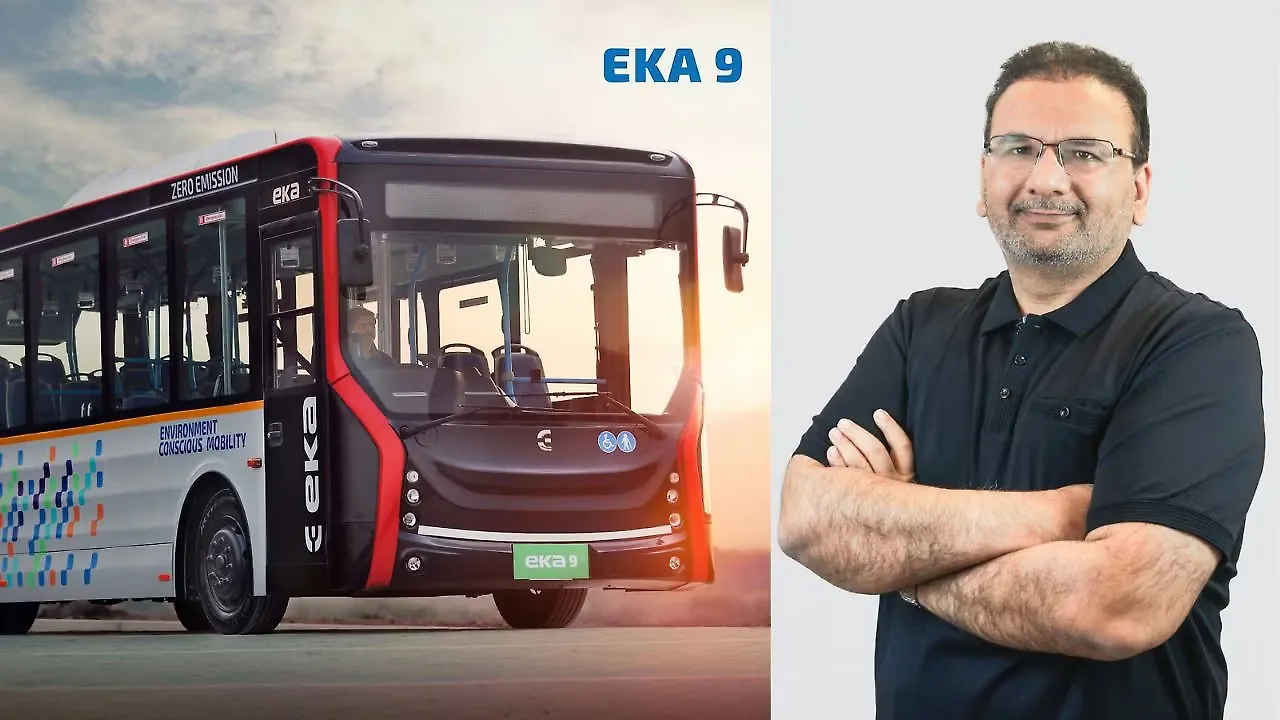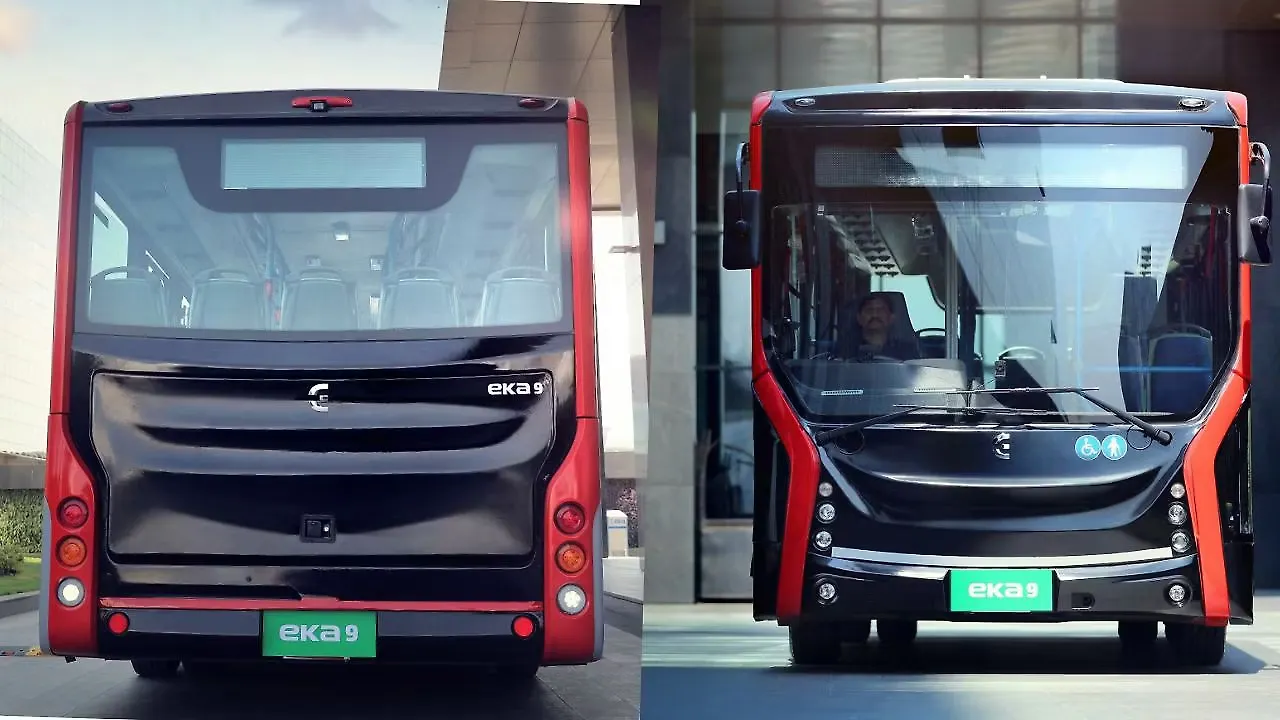
There is no question that Sudhir Mehta is pleased that his company was recently awarded the CESL (Convergence Energy Services) order for electric buses. Yet, the Founder and Chairman of EKA Mobility is pragmatic enough to understand that the real work begins now.
“This is the starting point of this journey and it is exciting because we have been at it for a couple of years. We took the more difficult route of trying to engineer everything in India in order to make-in-India,” he says.
Since EKA’s parent company, Pinnacle Industries (where Mehta is Chairman and Managing Director), was always very clear about setting up an e-bus platform designed in India, it took a while to get things validated.
EKA has got a mandate to operate and maintain 310 e-buses from CESL’s recently concluded tender for 6,465 electric buses. The company’s buses will be deployed in the State Transport Undertakings (STU) of Haryana, Arunachal Pradesh and Kerala.
“The market is so grossly under penetrated in India for public transport that we have to bring about a big change. With these tenders, the message is clear that electric mobility is the economically correct thing to do,” says Mehta.
Challenging Times Ahead
However, it is not the easiest of situations for a vehicle maker since it involves doing a whole lot of things, “which you never thought you would want to do”. As he puts it, these are going to be “interesting times” with financing being the first big step forward.
“I have been saying this publicly for a while that the biggest impediment for electric buses is that we need access to green financing,” he explains. The way these tenders are configured, it is essentially a single purpose vehicle (SPV).
“So we now have to form an SPV, which will comprise someone who is going to finance this, somebody who will run the buses and us. Our task is really to provide the product and provide the service for a 12-year period,” continues Mehta.
The task of the finance companies is to provide the money and the support for which they get paid over a period of time. The operator, meanwhile, must run the product on an agreed basis and provide the manpower. For Pinnacle, this is going to be a big learning where it will need to deliver buses over the next two years.

“We are trying to put together all the pieces and understand what it is,” he says. There is also a fourth part – the charging infrastructure – which will involve a whole lot of challenges in setting things up for the STUs and understanding their requirements.
Pooling Competencies
“So, there are a lot of agencies involved which have to bring their competencies. It is almost like an infrastructure project… much more than just an e-bus project. Over the next few months we will close off all these things and then start supplies,” says Mehta.
From his point of view, it is an exciting journey and he remains hopeful that as these business models improve over a period of time, more funding will come in. Within the industry, stakeholders are also keeping their fingers crossed about the Centre having some kind of payment security mechanisms in place for the future.
“This is the one big challenge all of us face in terms of getting paid on time since we do not have unlimited balance sheets. Yet, public transport is important and hopefully the right decisions will be taken so that this industry can be healthy,” avers the Pinnacle CMD.
As he adds jocularly, this was pretty much a game where everybody was taking orders at a frenetic pace initially “because that was the only way you could get into the market” and then, at some point, “you have to jump into the deep end of the pool”. The key, therefore, is to learn swimming before something else happens which can throw the script off-balance.
Huge Funds
The overall industry projections of around 50,000 buses over five years means a whopping financing sum of INR 70,000 crore. “You are talking about at least $10 billion in funding. This is serious money and I don't think any of the OEMs have anywhere close to the capacity to fund these vehicles,” says Mehta.
In this backdrop, it is imperative for the Centre to come up with some kind of a green funding mechanism, which literally means getting this at a reasonable cost with long tenures, because these are all long term contracts. Hence, if it is a 12-year contract, the financing should be ideally at least over an 8-9 year period because that is the only way the asset-liability ratio will match.
“If that happens, the industry will get these projected numbers, else interest will begin waning when it comes to participating in these tenders. There is no sense in taking on more orders if you cannot execute, which is what partially is the challenge today,” says Mehta.
Sure, there have been many orders released over the last two years but deliveries have been slow going by Vahan registration numbers. Electric bus makers like Pinnacle also believe that penetration into the private sector needs to happen and this cannot be solely a “government-led game”. Going forward, companies must also start buying electric buses for staff transport for the business to become viable.
Making Things Work
“Fortunately, we have a two-year period to execute our CESL mandate. But I think if you want figures in the thousands, you need to have a mechanism which works in a proper manner where there are many people who bring their respective skills to the table,” says Mehta.
So at some point, even nationalised banks will ideally have to throw their hats into the ring and start funding these projects in a manner that they did for solar and the like. Right now, their approach is still tentative and it is clear that the “e-mobility revolution will not happen” unless there are people ready to fund it.
According to him, there is no sense in taking on thousands of vehicle orders if there is no access to finance. The good part, however, is that the electric ecosystem is developing very fast and there is a clear focus among component makers to set up facilities which will help from the viewpoint of localisation.
Mehta is confident that the momentum will pick up when volumes actually happen and the hundreds eventually grow to thousands of electric buses rolling out of plants across the country. “This is when the ecosystem will become mature enough and prices will stabilise,” he says.

Battery Prices
Right now, everyone is betting on future prices and when one takes a 12-year contract, the bid is essentially on what could be the expected battery price after six years. “Now you have to be brave to predict,” adds Mehta in the context of battery prices shooting up in recent times when everyone thought they would come down by 6-8%. “Battery costs will have to come down for a country like India to be super competitive,” he says.
Pinnacle also has an alliance with VDL, the leading electric bus company in Europe, and the business plan involves exporting a large percentage of production from India.
“I do think we have an enormous opportunity because everybody is looking for a China Plus One solution. However, economics matters eventually and nobody will buy from India if the pricing is not competitive,” cautions Mehta.
The bottom line is that there is clearly a big market for India-made products and it makes sense for policymakers to develop the domestic EV market for the global arena. From Pinnacle’s point of view, VDL has the distribution capability and there is no conflict either since the products they sell in Europe cannot be retailed in India with specifications and price points being very different.
Bonding With VDL
“VDL’s products in Europe are expensive and come with lots of bells and whistles. The challenge in India is that the Government is the primary buyer and it is not buying based on specs, but on price,” says Mehta. Yet, he is confident that “these things will evolve in India”.
At some point, even the STUs and Centre may start buying on some kind of value-based pricing “because otherwise you will not get innovations coming in”. Pinnacle is now awaiting land allocation from the Madhya Pradesh government for a new facility towards the VDL alliance on which construction will begin within the next quarter.
Mehta is also of the view that collaborations should be the mantra going forward since that is the only way to get prices down. “If you ask me, there should be one or two big motor manufacturers and, likewise, a couple of battery manufacturers making (products) for everybody,” he says.
In EVs, the difference lies in the software and not mechanical portions. “To my mind, whether it is an axle or seat, these are all things which should be made in quantity so that we can give the best pricing to the customer. The industry is maturing and I think a lot of partnerships should hopefully happen in these areas,” elaborates Mehta.
Also Read: